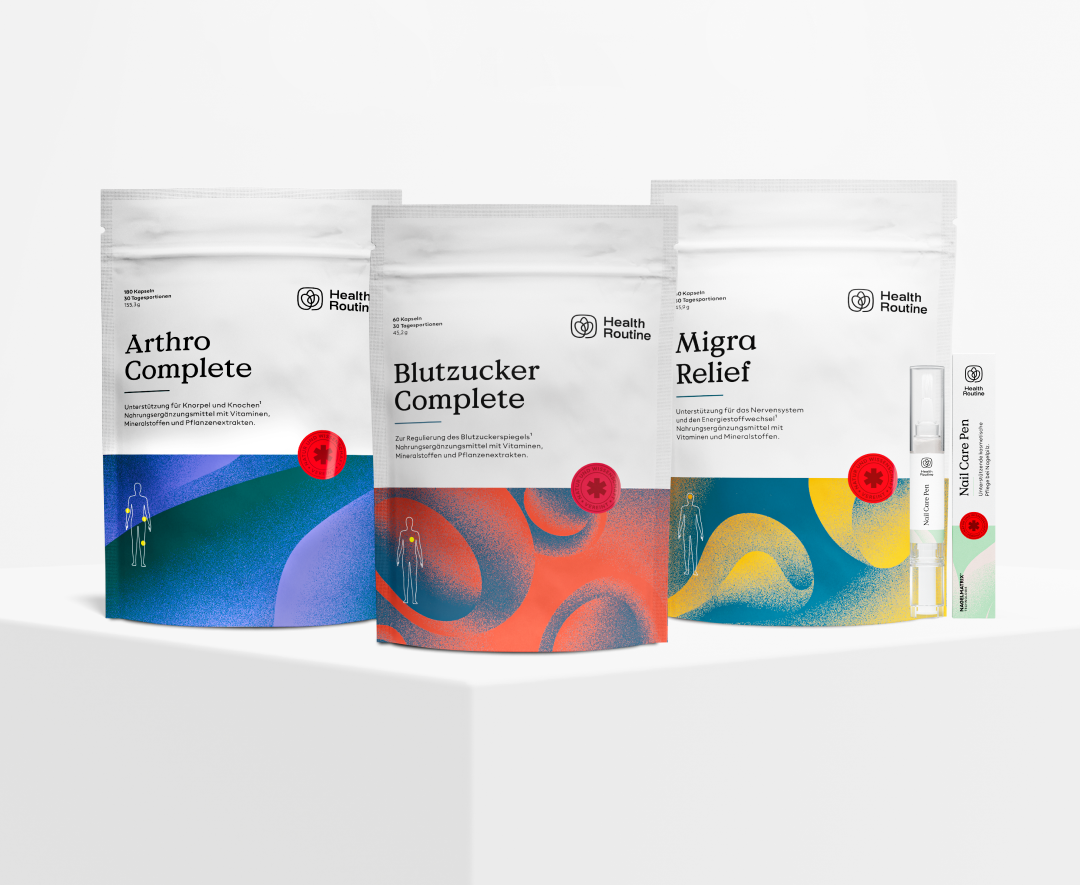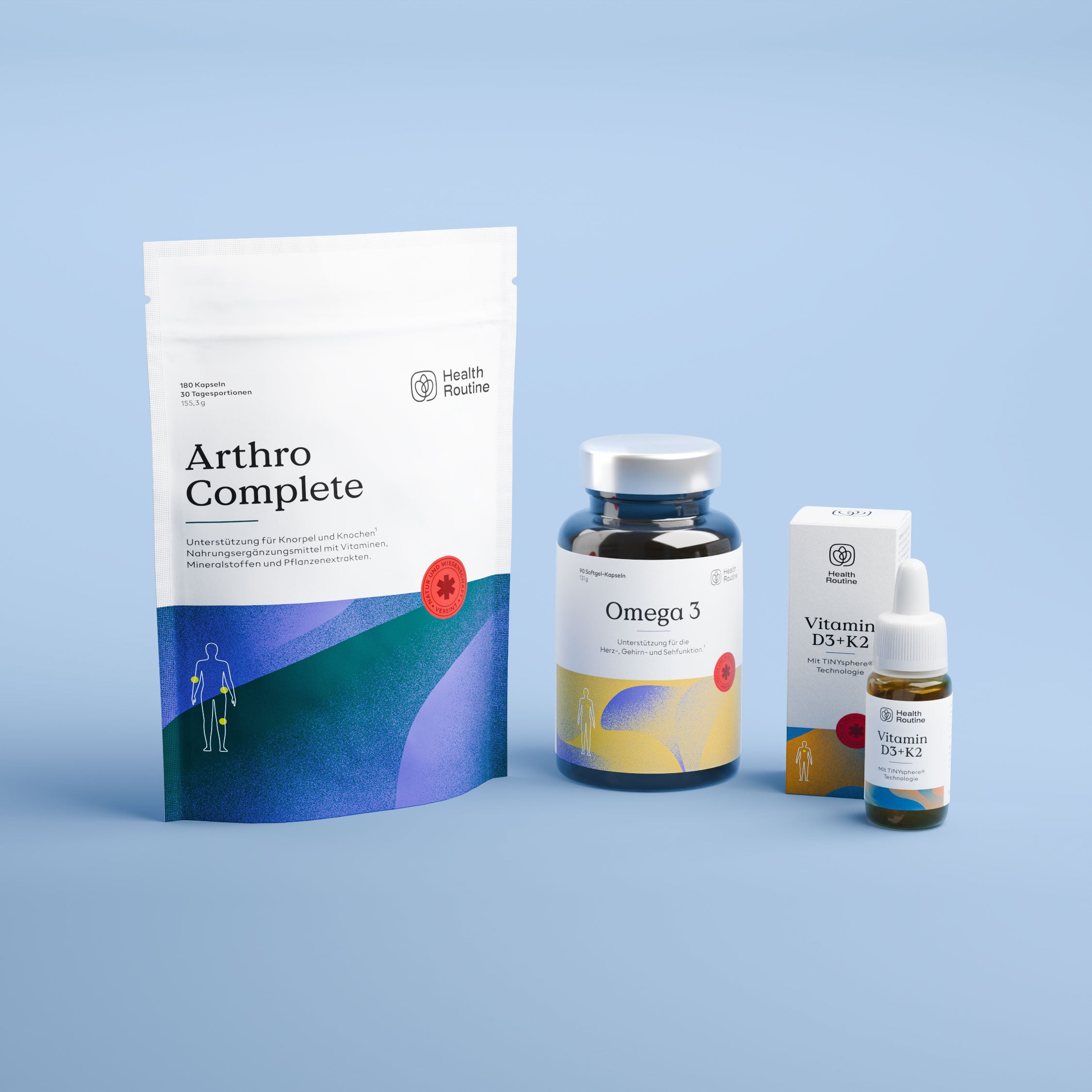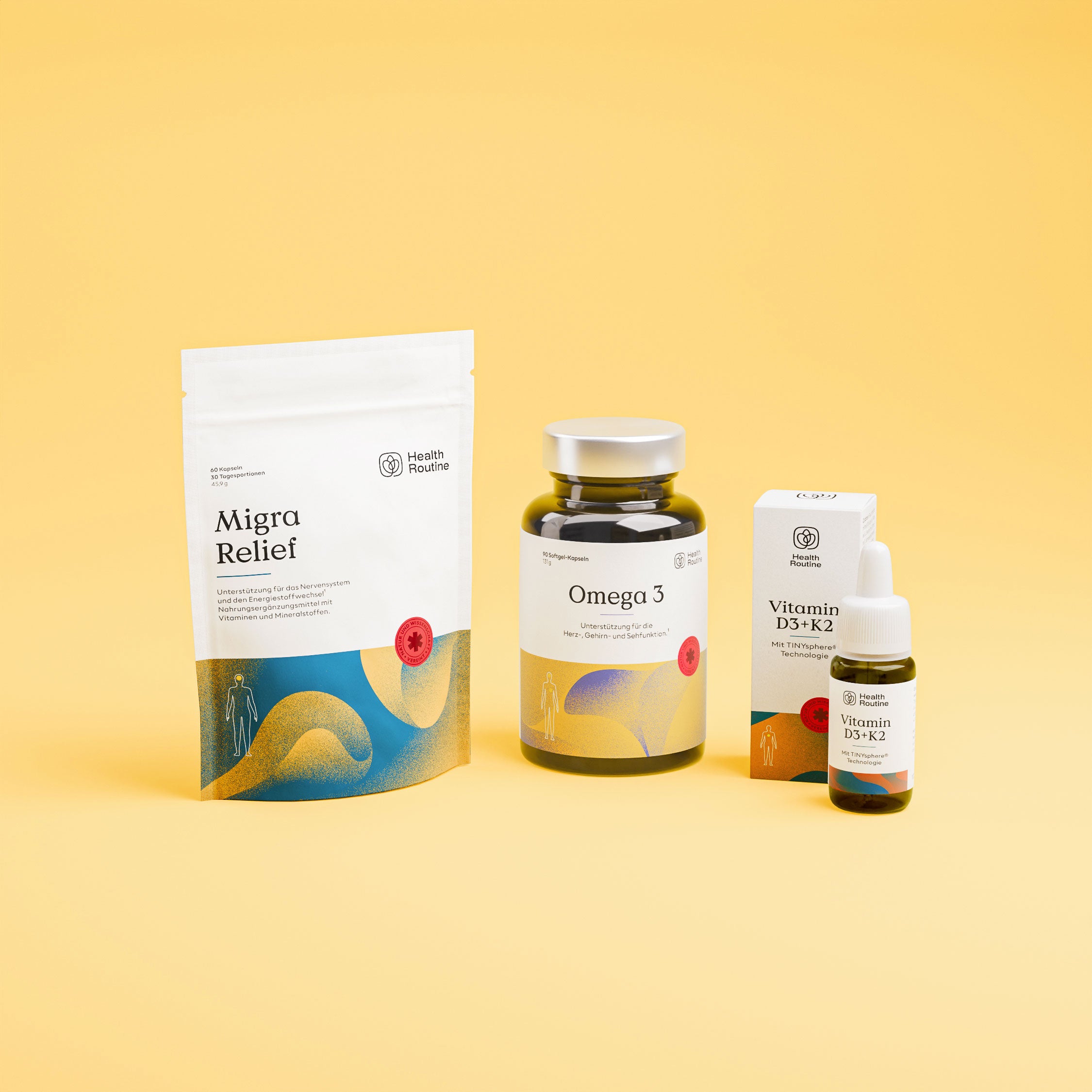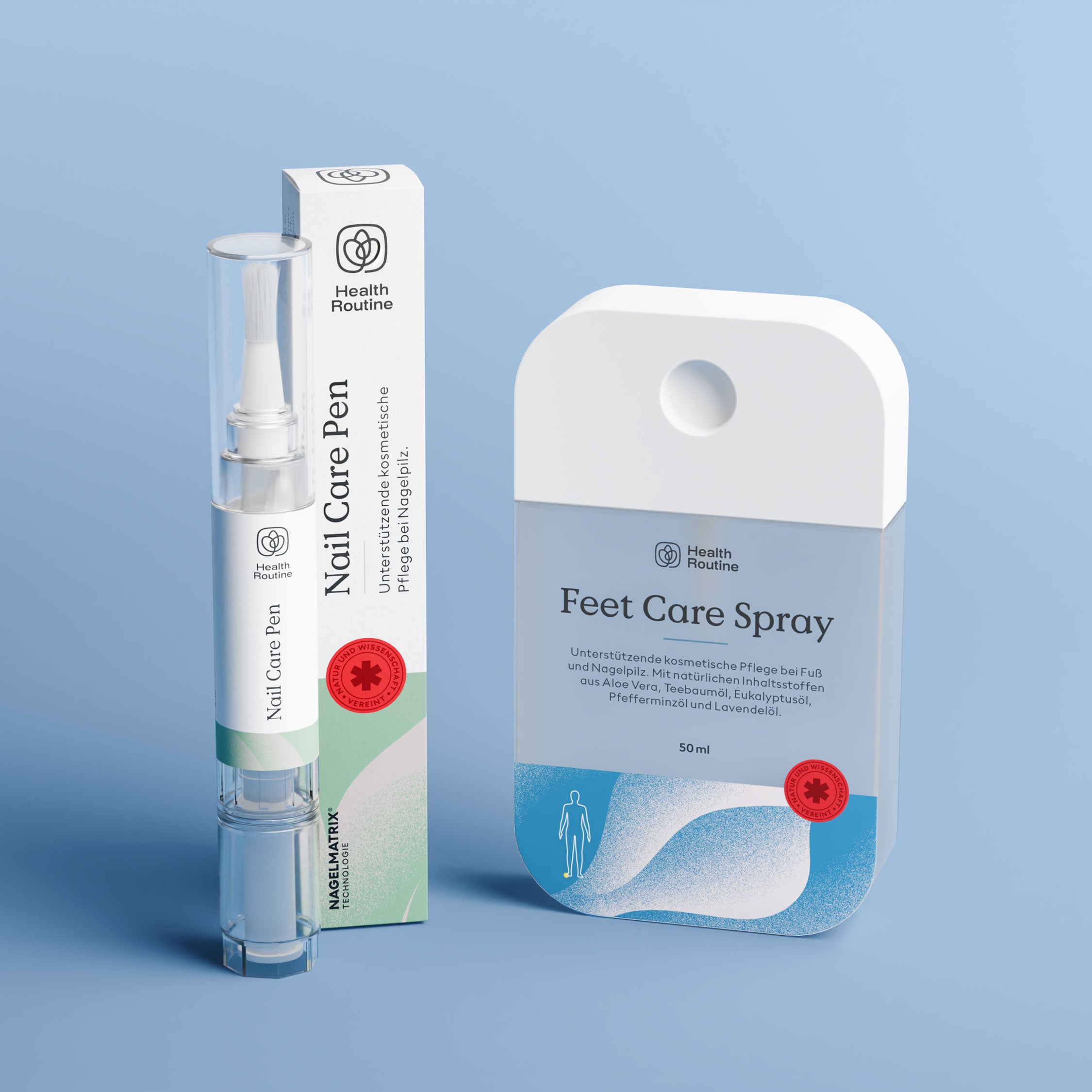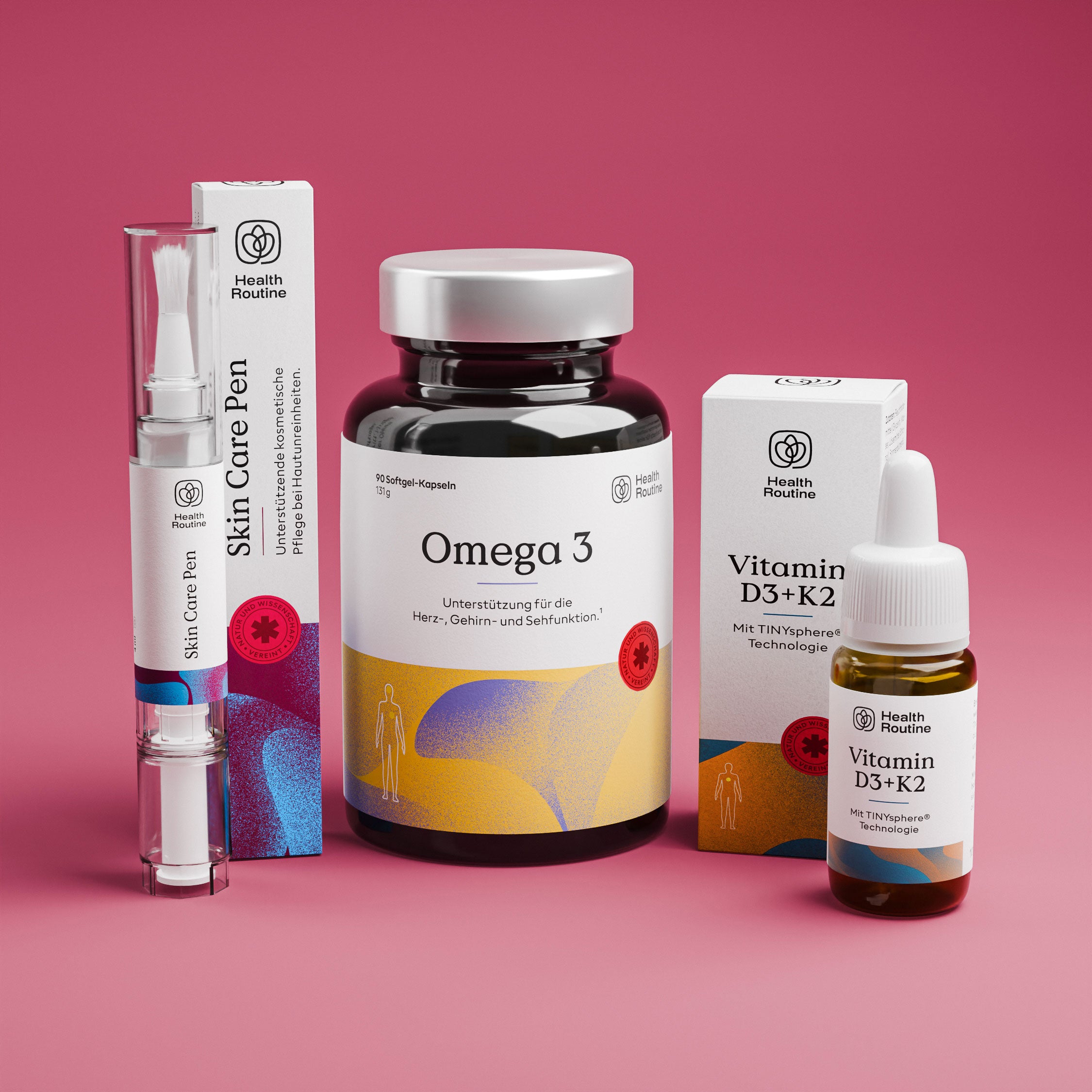Your fingernails are more than just a beauty feature. They protect your fingertips and provide information about your general health. But what if your nails become brittle, have splintering edges or even tear?
Brittle fingernails can be a sign of various causes, from improper care to health problems.
In this guide, we will address the topic of brittle nails in detail and offer you valuable tips to get your nails back into top shape.
Why do nails become brittle? All causes at a glance
Brittle nails can be caused by a variety of factors.
External factors: Often it is external influences, such as too much contact with water or aggressive chemicals, that dry out the nails.
Internal factors: Internal factors, such as certain diseases or a lack of important nutrients, can also be the cause of brittle fingernails.
It is crucial to know the exact cause in order to effectively address the problem.
The effects of improper care on nail health
Improper care can cause significant damage to your nails . Frequent use of
- aggressive nail polish removers,
- wearing artificial nails
- or constant filing with a coarse nail file can weaken the nail structure.
Washing your hands too often without moisturizing them or coming into contact with cleaning products without gloves can also dry out your nails and make them brittle.
Care for your brittle nails with our Nail Growth Serum
Health Routine's Nail Growth Serum can be your ideal helper for strong and beautiful nails. It combines carefully selected vitamins and natural oils to nourish and moisturize your nails.
We paid particular attention to the selection and composition of this nourishing oil composition in the Nail Growth Serum:
➽ Citrus oil
Citrus oil acts like a key that allows the nail to be opened at the cellular level. This allows the nourishing ingredients of the serum to penetrate to the nail root and unfold their full effect there.
➽ Almond oil
Almond oil can help prevent structural damage caused by UV rays. It moisturizes and contains important nutrients that can strengthen nails.
➽ Jojoba oil
Jojoba oil is one of the most effective oils for nail care because it strengthens and strengthens nails while nourishing the cuticles.
In addition to the valuable, natural oils, the serum also contains:
-
Tocopherol (vitamin E) , which can promote nail growth and gives your nails a natural shine, as well as
- Biotin (vitamin B7), which can optimize the appearance of brittle and thin nails.
With its practical pen shape and easy application, the Nail Growth Serum is the ideal addition to your daily nail care. Try it and experience the difference that natural ingredients can make for your nails!
What other nail diseases can cause brittle nails?
It's not just external influences that can damage your nails. There are various nail diseases that can lead to brittle toenails and fingernails.
Nail fungus: Nail fungus is one of the most common nail diseases. It can cause nails to thicken, discolor and become brittle. Timely treatment is crucial to effectively combat the fungus and restore nail health. Read this guide to find out exactly how you can treat nail fungus .
Psoriasis: Psoriasis, also known as psoriasis, can also affect the nails. They may become thick, yellowish in color, or have small dents. Treating the underlying condition can help relieve symptoms.
Lichen ruber planus: A rare skin disease that can also affect the nails and lead to brittle nails.
Nail terrace (onychoschisis): This is a condition in which the nails flake off in layers and become brittle.
It should be emphasized that the accurate diagnosis and treatment of these nail diseases should be carried out by a dermatologist .
If you have brittle nails and suspect that you have a nail disease, it is advisable to seek medical advice to get the correct diagnosis and treatment.

What other health factors play a role?
Not only external factors or nail diseases can affect your nails. Hormonal changes , such as those that occur during menopause, can also make nails more brittle.
Thyroid disorders, whether overactive or underactive, can also affect the health of your fingernails. You should always take such health factors into account and, if necessary, consult a specialist.
The importance of nutrient deficiencies and malnutrition
Nutrient deficiencies can be a major factor contributing to the development of brittle nails. A balanced diet is key to maintaining healthy nails.
Here are some nutrients whose deficiency can negatively affect the health of your nails:
Vitamin C deficiency: Vitamin C is essential for the production of collagen, a protein found in nails. A deficiency can lead to dry and brittle nails.
Vitamin D deficiency: A deficiency in vitamin D can weaken nails because this vitamin plays an important role in bone health, which is directly linked to nail health.
Vitamin E deficiency: Vitamin E helps maintain moisture in the skin and nails. A deficiency can lead to dry and brittle nails.
Iron deficiency: Iron is an essential component for the production of hemoglobin, which carries oxygen throughout the body. A deficiency can lead to brittle and pale nails.
Zinc deficiency: Zinc is an important nutrient for skin and nail health. A deficiency can lead to slower nail growth and brittle nails.
Magnesium deficiency: Magnesium helps in protein synthesis and cell repair. A deficiency can lead to brittle nails as it affects the overall health of the nails.
Biotin deficiency (vitamin B7): Biotin is known to promote hair, skin and nail health. A deficiency can lead to brittle, split and thin fingernails.
Omega-3 fatty acids deficiency: These fatty acids are necessary for your overall health, including nail health. A deficiency can lead to dry and brittle nails.
Protein deficiency: Since nails are made of keratin, a protein, a protein deficiency can lead to weak and brittle nails.
Calcium deficiency: Calcium is necessary for strong bones and nails. A deficiency can lead to brittle nails.
Expert tip: It is always advisable to consult a doctor or nutritionist if you notice any signs of nutrient deficiencies.
Genetic factors and causes
While environmental and dietary factors play a significant role in the health of your nails , genetic factors cannot be ignored either. Some people are genetically more prone to brittle nails, regardless of diet or lifestyle.
Genetic conditions such as,
- genetic predisposition,
- Ectodermal dysplasia,
- Nail type
- and nutrient utilization, can, for example, cause brittle nails.
How do chemicals and substances affect the health of your nails
Daily exposure to various chemicals and substances can also affect nail health :
- cleaning agents,
- Nail polish remover,
- artificial nails,
- Nail polishes
- and other harsh chemicals can dry out and weaken nails.
It is essential to protect your nails as much as possible from these substances by regularly caring for your nails and wearing gloves.
However, you should pay attention to the quality of the gloves - excessive sweating in cheap models can also lead to broken nails.
Brittle nails in winter: Are environmental influences to blame?
Winter can be a tough time for our nails. The low temperatures and dry air can dry out the nails , making them more prone to breakage and cracking. To avoid this, it is advisable to moisturize the hands and nails well and wear gloves to protect them from the cold.
Expert tip: Especially in winter, you should give the cream time to absorb between applying cream to your hands and going outside. The water it contains can lead to frostbite of the skin and nails.
Stress and its effects on your nails
Stress can put a significant strain on our bodies and our nails are no exception. Chronic stress can cause hormonal imbalances that can negatively impact nail health.
In addition, stress can lead to bad habits such as nail biting, which further weakens nails. Develop effective stress management strategies to protect not only your mental health but also your physical health, including the health of your nails.
10 tips for healthy and beautiful nails: This is what you can do!
Brittle nails can be a constant companion, but fortunately there are effective solutions to counteract this. Here are ten tips that can help you keep your nails healthy and beautiful.
1. Healthy and beautiful nails: Why gentle care is important
Gentle care is the first step to treating or even preventing brittle nails. This means caring for your nails regularly without using harsh methods or products. Gentle care can help keep your nails strong and healthy.
Expert tip: File rather than clip to avoid splintering and cracking your fingernails. Nails can be shaped particularly gently with the microfine glass file from Health Routine . It is suitable even for sensitive nails and provides gentle care.
2. Nutrition and nail health: everything you need to know
Proper nutrition is an essential factor for healthy nails. A balanced diet, rich in vitamins and minerals , can promote the growth and strength of your nails.
Here are seven foods that can contribute positively to nail health :
- Salmon ( Omega-3 fatty acids),
- Spinach (iron),
- Almonds (magnesium),
- Eggs (biotin),
- Sweet potatoes (vitamin A),
- Oatmeal (zinc)
- and oranges (vitamin C).
3. Nail polishes that can support your nail health
During the cold winter months , special nail polishes can provide an additional layer of protection for your nails. These nail polishes for brittle nails often contain nourishing ingredients that help strengthen and protect the nails.
Make sure to choose a nail polish for brittle nails that is free of harmful chemicals.
4. Care for your nails with a pleasant nail bath
A nail bath can be a wonderful way to nourish and strengthen your nails. It helps to moisturize the nails and keep the cuticles soft. For a nourishing nail bath, you can
- Olive oil,
- Coconut oil
- or chamomile tea, all of which have moisturizing properties.
5. Nail oils for your nail care
Nail oils are an essential part of nail care . They provide the nails with moisture and nutrients that help prevent breakage and splitting .
Regularly applying cuticle oil can keep your nails and cuticles healthy and beautiful.
You can find a natural nail oil for brittle fingernails in our shop. The Nail Growth Serum consists of the following ingredients:
- Almond oil,
- Jojoba oil,
- Coconut oil,
- Olive oil,
- Tocopherol (vitamin E),
- Lemon oil
- and biotin (vitamin B7).
6. The benefits of a polish break for your nails
A break of at least one week per month can help your nails to recover and regenerate. It prevents the nails from being damaged by constant exposure to chemicals from nail polishes. The situation is different with nourishing nail polishes without harmful chemicals.
7. Why you should avoid artificial nails
While artificial nails may look beautiful, they can also cause significant damage to your natural nails . They can lead to
- nail fungus,
- bacterial infections
- and other nail diseases.
It is therefore advisable to avoid artificial nails to maintain the health of your natural nails.
8. Drink enough water
Staying hydrated is not only important for your overall health, but also for the health of your nails . Water helps keep nails moist and less prone to breakage and cracking.
9. Protect your nails with work gloves
Wearing work gloves can protect your nails from harmful chemicals and harsh conditions. Gloves should be worn
- during cleaning,
- when washing dishes,
- when doing gardening,
- during renovation work
- and when handling chemicals.
However, make sure you use gloves that do not make you sweat, as extreme moisture can also cause nail damage.
10. Re-oil after every wash: The insider tip for more beautiful nails
You should always moisturize your hands and nails after washing them. Failure to moisturize your nails can lead to dry, brittle nails, increase susceptibility to infections and affect the appearance of your nails.
With our Nail Growth Serum gives your nails intensive care , nourishes them with valuable ingredients such as almond and jojoba oil and supports their natural beauty and resilience. The result can be attractive and well-groomed nails.
How common are brittle fingernails and toenails really?
Brittle fingernails and toenails are a common problem that affects people of all ages . It is not uncommon for someone to face brittle fingernails, especially if they are in an environment with dry air or are in frequent contact with water.
Likewise, brittle toenails, especially brittle toenails, can be a sign of poor foot care or even health problems such as fungal infections. Therefore, pay attention to the health of your fingernails and toenails to prevent or treat brittle nails.
Different forms of nail fracture
Nail breakage can occur in different forms, which often indicate different causes. One of the most common forms is horizontal nail breakage , in which the nails flake off or split in layers .
Another form is vertical nail fracture , which is characterized by cracks or splits in the nail plate from the base to the tip.
In addition, nail breakage can also be caused by trauma , such as impact or crush injuries, which can lead to bruising or even nail breakage.
To determine the best treatment strategy, the specific type of nail fracture must be identified.
Signs of illness: When should you see a doctor?
Be aware of certain warning signs that could indicate a serious condition . If you notice that your nails suddenly
- become very brittle,
- exhibit colour changes
- or show unusual patterns such as grooves or dents, you should consult a doctor.
Likewise, medical advice is necessary if you notice pain, swelling or inflammation in the nail area.
These symptoms may be signs of infections or other health problems that require professional treatment.

Examinations for brittle nails: What does the doctor do?
When visiting a doctor for brittle nails, the dermatologist will first perform a thorough examination of the nails to identify the possible causes.
This may include a visual inspection of the nails as well as a question about your lifestyle and current health.
In some cases, the doctor may also take a nail sample to examine under a microscope or test for fungal infections.
In addition, he or she might order blood tests to identify possible nutritional deficiencies or other health issues that could affect nail health. Once diagnosed, an individualized treatment plan will then be created.
Conclusion
On the way to stronger and healthier nails, we have provided you with valuable insights and practical tips to overcome brittle nails.
Your nails are an important indicator of your health and well-being. The variety of possible causes of brittle nails shows how important it is to carefully care for and protect them.
Whether it's diet, care routines or the influence of environmental factors, you can actively contribute to making your nails strong and healthy again. Give your nails the attention they deserve and enjoy the feeling of beautiful and strong nails.
FAQ
How long does it take for nails to recover?
Recovery time for nails can vary depending on the specific cause of damage or weakness. Generally, it takes about 3-6 months for fingernails and up to 6-12 months for toenails to fully regrow and recover. A balanced diet and proper care can aid this process.
Which nail file for brittle nails?
For brittle nails, it is best to use a microfine glass file or crystal file. These files are gentler than metal files and prevent further splitting and cracking. They allow a precise filing motion that provides extra splinter protection and minimizes the risk of nail breakage.
Which doctor is responsible for treating brittle nails?
For treatment of brittle nails, you should see a dermatologist. Dermatologists specialize in skin, hair, and nail conditions and can diagnose and treat the underlying causes of brittle nails.
In some cases, a podiatrist may also be consulted to treat toenail problems.
🌿 Discover more guides from Health Routine now:
- 10 vitamins for healthy nails » What you should know!
- Nail wall: All information on care, inflammation & treatment
- Healthy nails » Tips for stronger and beautiful nails
- Athlete's foot vs. nail fungus » These are the differences | Guide
Your medical notice
Our products are not intended to diagnose, treat, cure, or prevent any disease. The information provided in this article is for informational purposes only and is not intended to be a substitute for advice from your doctor or other healthcare professional.
In addition, our products are not intended to be a substitute for medication or other treatment prescribed by your doctor or health care provider. Regardless of the duty of care applied, no liability or warranty is assumed for the
- Accuracy,
- topicality,
- completeness
- and availability of the information provided.
No legal claims can be made for damages potentially resulting from the use of the corresponding information. Liability claims of any kind are excluded.
